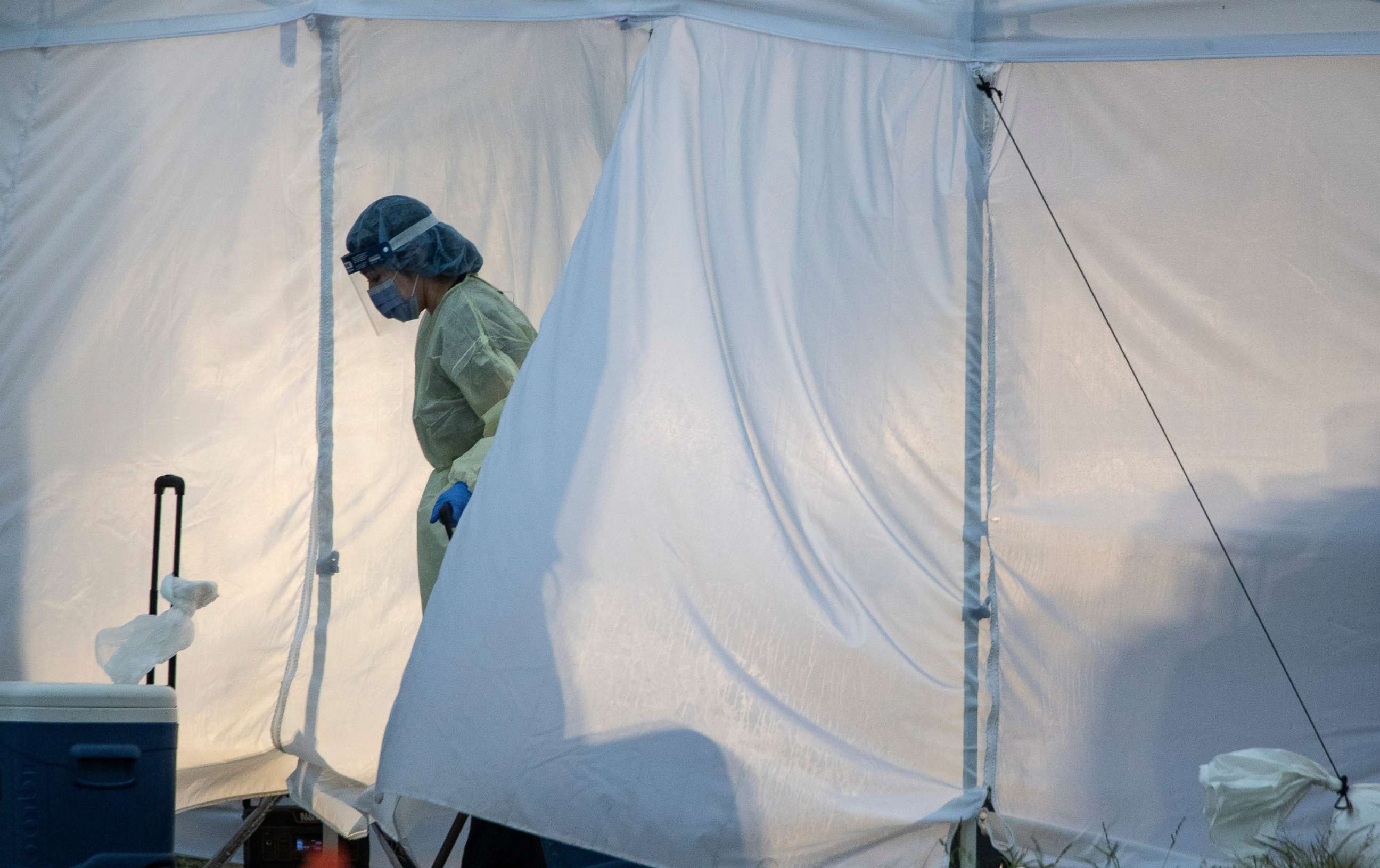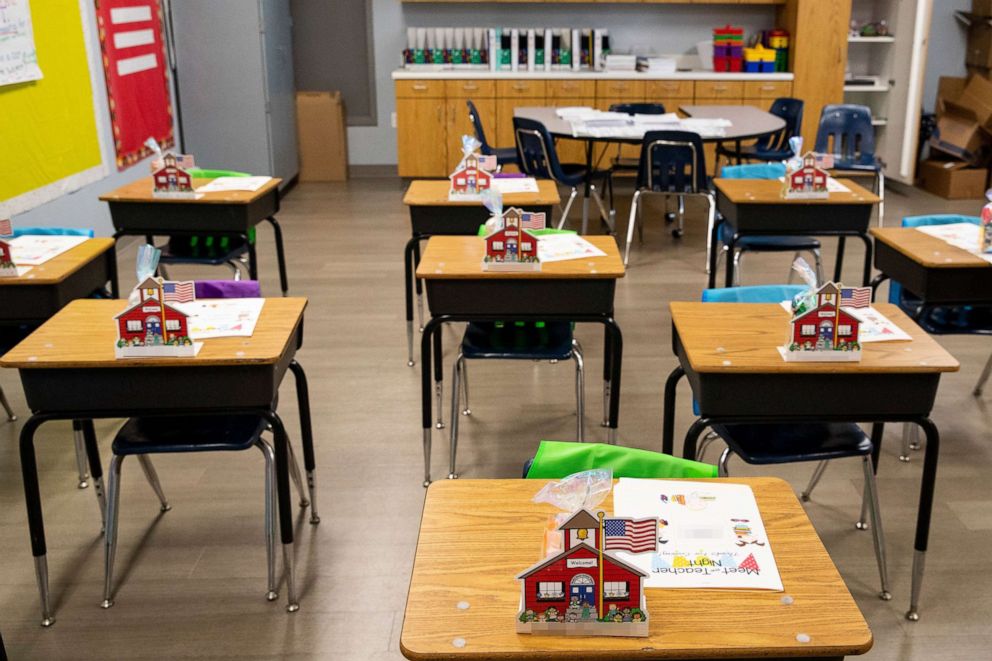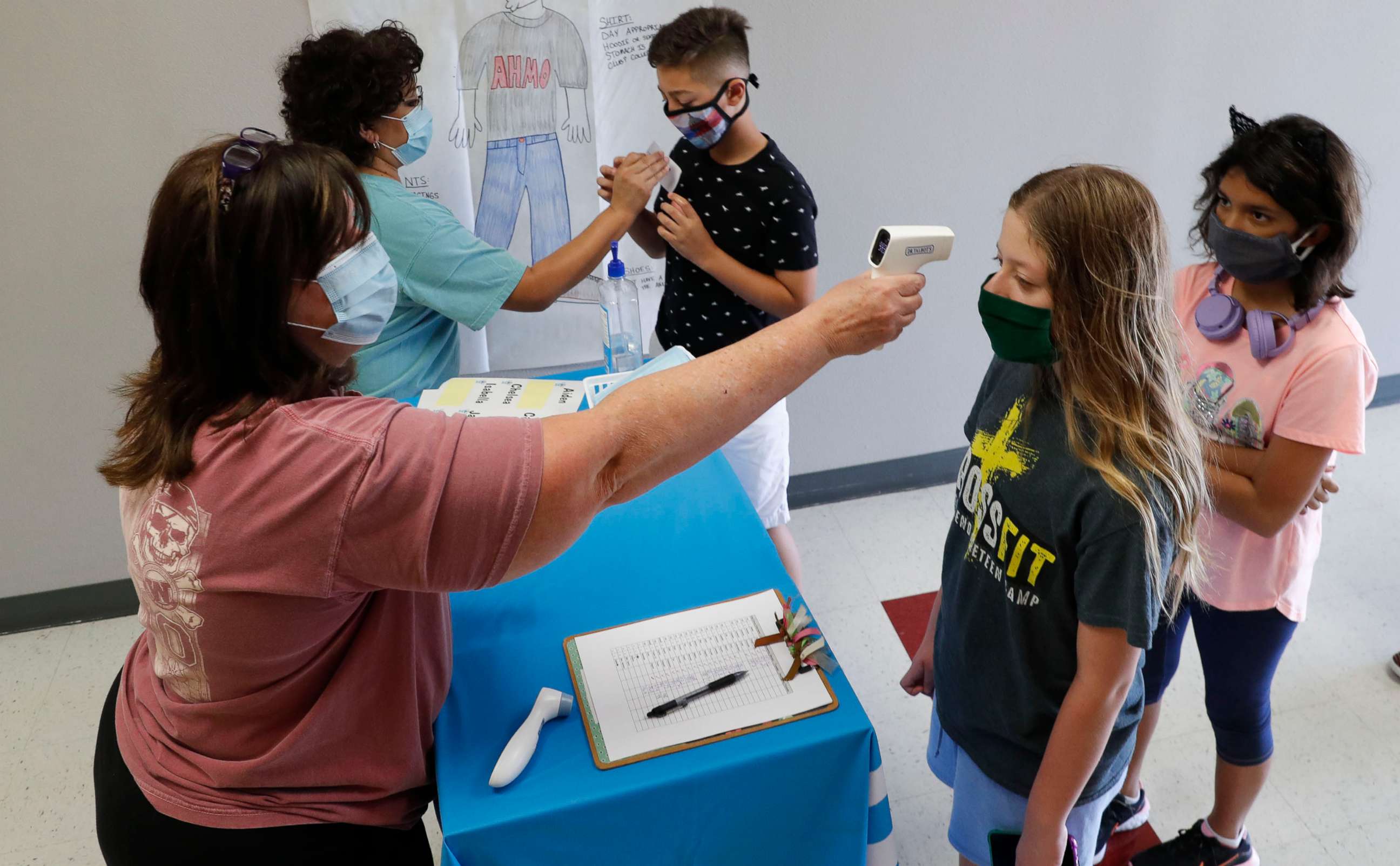COVID-19 cases in infants skyrocket in 1 Texas county as new study offers insight into symptoms
A mother recounts what happened to her 2-month-old daughter who tested positive.
As the fight against the novel coronavirus continues across the nation, infections among the younger populations have sounded an alarm for parents of infants and children.
One county in Texas has seen an alarming number of new positive COVID-19 cases in babies.
Officials in Nueces County reported that more than 85 babies under the age of 1 have tested positive for coronavirus since mid-March, and of those, 60 were reported this month.

The area in Southern Texas, which includes Corpus Christi, has the highest positivity rate and has seen one of the fastest growing outbreaks in the state. A 6-week-old baby confirmed with COVID-19 died in Nueces County in June.
The medical examiner said these numbers serve as a reminder that no one is immune to the virus.
A young mother from the hard-hit sunbelt state of Arizona spoke to ABC News Phoenix affiliate KNXV, and detailed the moment she knew something was wrong with her 2-month-old daughter, Eevee.
"I had a panic attack. I literally just started pacing and I couldn't breathe because I was just so nervous," Angelica Wendell said when her young child's giggles and smiles were replaced by bad congestion, a fever and a rash. "I had a bad feeling about it, so I took her to the emergency room."
"Everyone's like, 'Kids don't get it,'" she said, "so when you find out it's COVID, it's just heartbreaking."

Wendell believes Eevee contracted the novel coronavirus when her sister visited.
"Just be careful, even if you don't let your baby outside, be careful who you let around them because you think even your family is fine, but you may not know exactly what they're doing," Wendell said. "It's very sad to watch your child [get sick], especially with this disease that no one really knows a whole lot about."
Wendell told KNXV that Eevee's health has improved. Recently, she has been fever-free and has started to eat again -- but she is just one of a growing number of children who have apparently been infected with the virus in the U.S.

Dr. Todd Ellerin, an infectious disease specialist at South Shore Health in Massachusetts, explained that contracting the coronavirus can be especially dangerous for younger patients.
"We have to keep in mind that newborns and infants have underdeveloped immune systems, so that may be one of the reasons why COVID can hit particularly hard in this group," he said.
A recent study from the Journal of the American Adacemy of Pediatrics looked at the epidemiological characteristics and transmission patterns of pediatric patients with COVID-19 in China.
The study showed that 90% of children that tested positive had mild, moderate or no symptoms.
The study also showed that 10% of infants who tested positive with the coronavirus became very ill, and younger children, especially infants, were more prone to severe illness.







